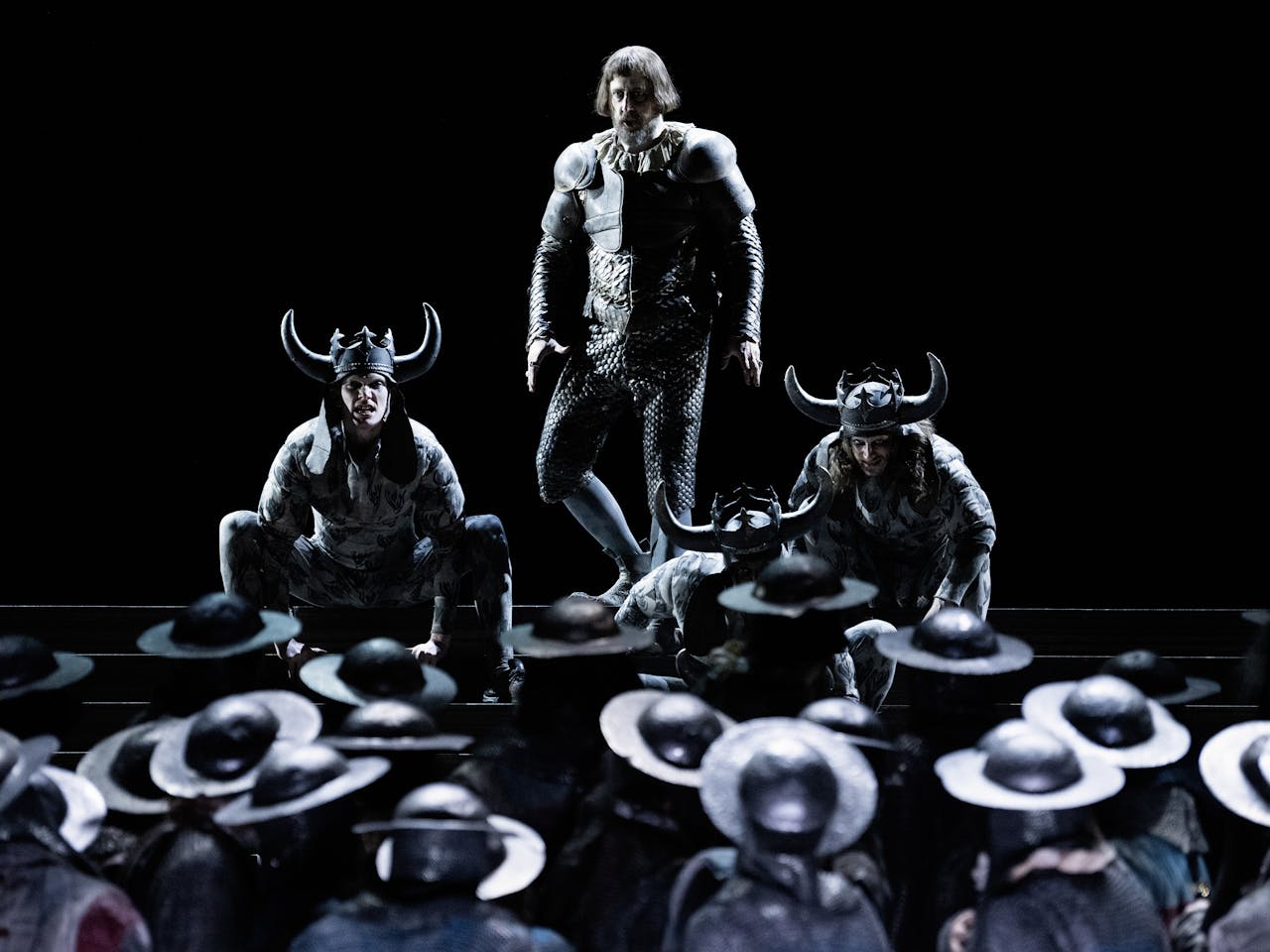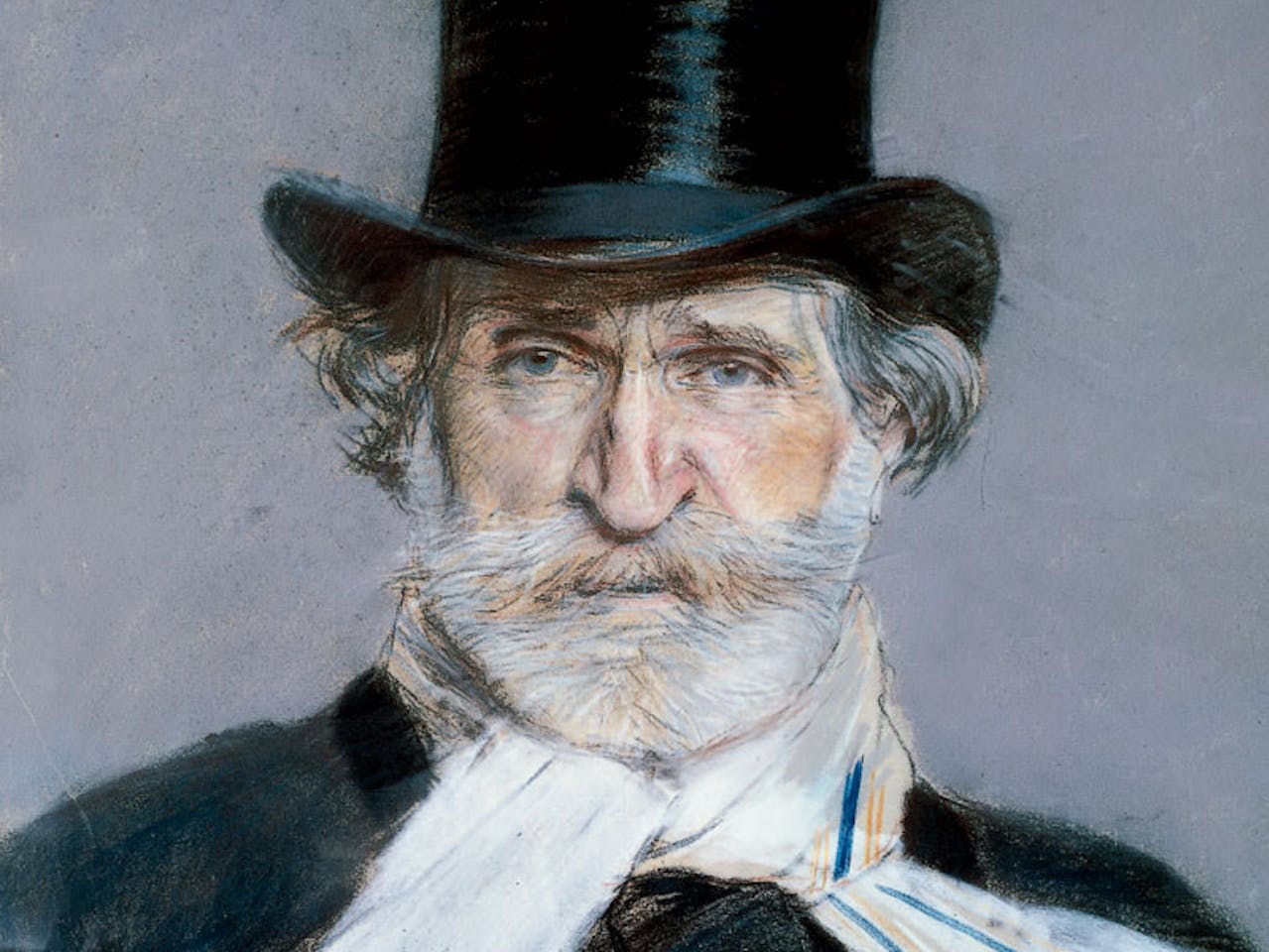Giuseppe Verdi
Biography
Giuseppe Verdi (1813–1901) was one of the greatest operatic composers. His instincts for melody and thrilling drama have ensured the enduring popularity of many of his 28 operas, which include Rigoletto, La traviata, Don Carlo and Otello.
Verdi was born to a family of innkeepers and grew up near Busseto in northern Italy. Later in life he made much of his ‘peasant’ background and lack of formal music education. While in truth his talent was nurtured fairly early on, Verdi still faced terrible difficulties: the triple tragedy of the death of his two children in 1838 and 1839, and his wife Margherita in 1840, followed by the catastrophic failure of his second opera Un giorno di regno, almost led him to renounce composition altogether. The unprecedented success of Nabucco changed everything. Verdi wrote 16 operas in the following 11 years, and in the last few (from Rigoletto in 1851 on) achieved a rich maturity. Following the sensationally popular La traviata Verdi’s pace slowed as he focussed on larger works, including Les Vêpres siciliennes and Don Carlos for the Paris Opéra. After Aida (1871), a massive work commissioned to celebrate the opening of the Cairo Opera House, Verdi apparently retired. Nearly ten years later, Verdi’s publisher Giulio Ricordi enticed him back to composition by proposing a collaboration with the young composer and librettist Arrigo Boito. A revised Simon Boccanegra in 1881 was followed by two last, great operas, based on works by Shakespeare, Verdi’s favourite playwright: Otello (1887) and Falstaff (1893).
Verdi’s letters reveal a man of uncompromising integrity. He was intimately involved with every stage of his operas’ creation, often writing nearly as much of the libretto as his chosen librettist. All his operas exhibit a sophisticated development of Italian opera conventions, used to further his incisive character portraits.
Find out more about Giuseppe Verdi's life and work: Creative Spotlight: Giuseppe Verdi
Watch
Watch Giuseppe Verdi's works on Royal Ballet and Opera Stream and on stage:
- Opera and music
Il trovatore
Verdi’s opera of obsession and superstition returns to the Royal Opera House.

Be the first to know
Sign up to hear the latest Royal Ballet and Opera news, receive ticket alerts, and discover how to support us.
Sign up to hear the latest Royal Ballet and Opera news, receive ticket alerts, and discover how to support us.
